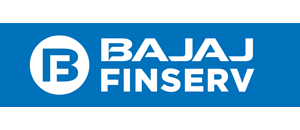Purpose
Personal loans can be used for a variety of purposes, including medical emergencies, wedding expenses, home renovations, education, travel, debt consolidation, or any other personal financial need.
Personal loans are financial products offered by banks, non-banking financial companies (NBFCs), and other financial institutions to individuals for various personal expenses. Here are some basics you should know about personal loans in India:

Personal loans can be used for a variety of purposes, including medical emergencies, wedding expenses, home renovations, education, travel, debt consolidation, or any other personal financial need.
Eligibility criteria for personal loans vary from lender to lender but typically include factors such as age, income, employment status, credit score, and existing financial obligations.
Personal loan interest rates can be fixed or floating and vary based on the lender, the borrower's creditworthiness, loan amount, and tenure. Interest rates may also be influenced by prevailing market rates set by the Reserve Bank of India (RBI).
The loan amount that can be availed and the repayment tenure also vary across lenders. Generally, loan amounts can range from a few thousand rupees to several lakhs, and repayment tenures can range from a few months to several years.
Applicants need to submit certain documents such as identity proof, address proof, income proof, and bank statements as part of the loan application process. Self-employed individuals may need to provide additional documents related to their business.
A good credit score is often a prerequisite for availing a personal loan at favorable terms. Lenders assess the creditworthiness of applicants based on their credit scores, which reflect their credit history and repayment behavior.
Lenders may levy processing fees, prepayment charges, late payment penalties, and other fees associated with the loan. It's essential to understand these charges and factor them into your loan repayment calculations.
Personal loans typically offer flexible repayment options, including equated monthly installments (EMIs). Borrowers can choose the EMI amount and tenure that suits their financial situation.
Personal loans are generally unsecured, meaning borrowers don't need to provide collateral or security. However, some lenders may require collateral for larger loan amounts or for borrowers with lower credit scores.
Borrowers can prepay their personal loans partially or in full before the end of the loan tenure. However, lenders may charge prepayment penalties or foreclosure charges, so it's essential to understand these terms before availing the loan.





